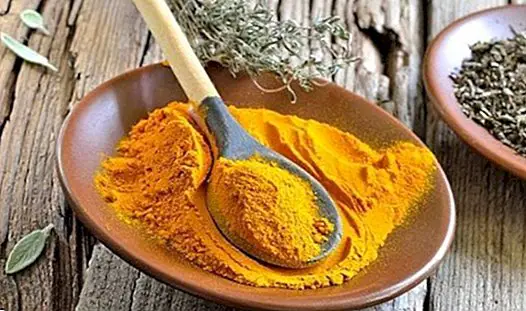Creatine: properties, benefits in athletes and side effects
There is no doubt that the sports supplements are booming in recent years, especially because the increase of young people who want to develop their muscle mass, or who practice sports and physical exercise is -in fact- growing.

And is that as we knew in our note on the arginine, we can currently find a great diversity of sports nutrition supplements especially useful for development of muscle mass.
In fact, Creatine is a derivative of the amino acids arginine, methionine and glycine. The body produces it basically in organs such as the liver, pancreas and kidneys, although it can also be obtained through foods such as meat or fish, or by purchasing nutritional supplements in stores.
This is what happens, for example, with creatine, one of the most popular supplements that can be found in sports nutrition stores, and one of the most consumed among athletes and bodybuilders.
What is creatine?
Creatine is a nitrogenous organic acid, which is naturally found in vertebrates, and helps the supply of energy to all the cells of our body, highlighting especially the muscles.
It was discovered and identified in the year 1832 by Michel Eugene Chevreul, who was able to discover an existing component in the skeletal muscles.
This accumulates precisely in the skeletal muscles in the form of free creatine, which binds to a phosphate molecule (PCr). This PCr serves as an immediate source of energy.
Benefits of creatine
Although one of its main Benefits go through the rapid energy contribution to our body, and to our muscles, the truth is that for years many neurologists have been using it in older people, because it becomes a nutritional supplement of enormous value in patients with the following diseases:
- Huntington's disease: neurodegenerative disorder of genetic origin, which affects muscle coordination and leads to dementia and cognitive decline.
- Lou Gehrig's disease: it consists in that the muscles lose their source of nutrition, so that they become weak and small.
It has been shown that people affected with these diseases respond favorably to a therapy that includes moderate muscular exercise and consumption of creatine supplements.
Be that as it may, here are the main ones properties of creatine:
- Add volume and strength to growing muscles.
- Add water to dehydrated muscle cells.
Foods rich in creatine
Although the most common is to buy supplements with creatine, the truth is that following a balanced diet, and consuming two servings each week meat and fish, we can contribute to our body the amount of creatine we want.

For example, we can find 5 grams of creatine per kilo of meat.
Creatine as a nutritional supplement
Creatine is well known for being one of the nutritional supplements most tend to consume athletes and bodybuilders. In fact, it is common to find ourselves in many of these stores with large creatine pots, for their benefits for muscles.
Recommended amount of creatine
We can talk about a recommended amount of creatinine or a ideal dose of creatinine, without exceeding -of course- an excessive consumption that could be dangerous for our body.
We must bear in mind that creatinine consumption is based on two phases: an initial loading phase, followed finally by a maintenance phase:
- Initial loading phase: generally between 25 to 30 gr. daily creatine monohydrate for one week (which means a dose of 0.3 to 0.4 grams per kilo of body weight).
- Maintenance phase: doses of 5 - 10 gr. newspapers.
Side effects of creatine
One of its most well-known side effects is weight gain, although there are other medical data that indicate that creatine may predispose to muscle cramps or cramps.
We must also bear in mind that its long-term use can be very dangerous, given that with this supplement we are over-hydrating the muscle cells in excess, which in the long run can be dangerous.
And what are their effects on athletes?
It is useful for professional athletes as long as it is consumed in moderation and never in the long term, given that with this supplement we are over-hydrating the muscle cells in excess, which in the long run can be dangerous.
Between the effects of creatine in athletes most important we find:
- Add volume to growing muscles.
- It brings strength to the muscles.
- It provides water to dehydrated muscle cells during physical exercise.
- It provides greater resistance to the exercises that require more effort.
- Provides greater resistance to lactic acid.
- Improves physical recovery between series, much faster.
In addition to acquiring creatine as a nutritional sports supplement, remember that there are also foods that will give you creatine. It emphasizes especially the meat, that contribute around 5 grams of creatine by each kilo of meat.
Images | Seu Mundo à © Aqui / Burger Baroness This article is published for informational purposes only. You can not and should not replace the consultation with a Nutritionist. We advise you to consult your trusted Nutritionist.


